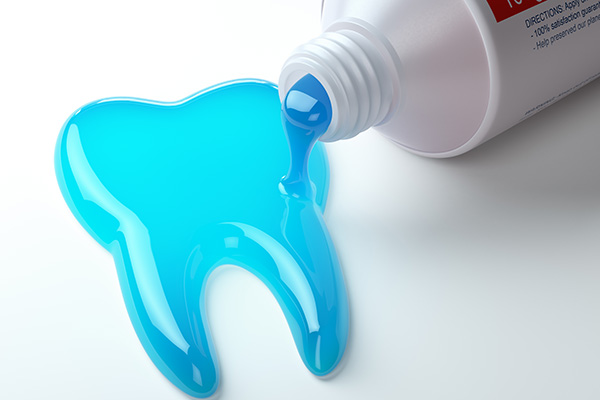 Curious about whether fluoride is important to your oral health? Read on to learn more about how fluoride is used in general dentistry. Fluoride plays an important role in the prevention of cavities, and it can be a safe component of one's daily oral care routine.
Curious about whether fluoride is important to your oral health? Read on to learn more about how fluoride is used in general dentistry. Fluoride plays an important role in the prevention of cavities, and it can be a safe component of one's daily oral care routine.
The purpose of fluoride in general dentistry
Fluoride can seem intimidating when first hearing about it, but it is actually a naturally occurring mineral. In fact, many cities add fluoride into the public drinking water due to the safety of the mineral and the oral health benefits it provides. The following is an overview of how general dentistry can utilize fluoride and the benefits it can offer:
Fluoride strengthens weakened enamel
The primary purpose of fluoride in general dentistry is to strengthen the bonds of teeth enamel. This makes teeth more resistant to attacks from acids in the mouth, which can result when bacteria and food compounds (such as sugar) combine. Fluoride is most often used for preventive purposes. However, if the enamel is weakened, then fluoride may be prescribed to strengthen and remineralize the enamel.
Fluoride is easy to implement into your daily oral care routine
Another reason dentists are so fond of fluoride use is that it is easy and safe for people to implement into their daily oral care routine. It can be added to antibacterial mouthwash that is used daily or in toothpaste. As mentioned, even some public water drinking supplies contain fluoride.
General dentists can provide special fluoride treatments when necessary
Individuals that have healthy teeth can get the recommended amount of fluoride each day by simply choosing a fluoride toothpaste or mouthwash. However, patients that have weakened enamel and are more vulnerable to tooth decay if not promptly treated may need additional fluoride each day, in which case the general dentist may provide a special fluoride treatment to use once or twice per day.
Fluoride vs. alternative treatments
Fluoride is used either to prevent weakened enamel or strengthen enamel to prevent cavities. However, it cannot treat cavities, which occur when the enamel wears away and tiny holes form on teeth. In this case, the patient may need a dental filling or root canal therapy to restore the appearance and health of the tooth.
The ideal candidate for fluoride treatment
Fluoride is safe for most people to use daily as long as it is in the appropriate amounts. People that have worn-down or damaged enamel caused by bacterial attacks may be ideal candidates for fluoride mouthwash that is prescribed by a general dentist specifically for the purpose of strengthening the enamel.
Ready to schedule an appointment?
Here at our general dentistry practice, we help our patients strengthen their teeth and gums through preventive and restorative treatments. We also assist our patients in crafting an at-home daily regimen to reduce the risk of cavities and gum disease. Call or message us today to schedule an appointment.
Request an appointment or call Culebra Family Dentistry at 210-787-1554 for an appointment in our San Antonio office.
Related Posts
Regular general dentistry visits can help maintain your dental health. This can apply to your family as well. Spotting dental issues early can improve your dental health. If you want to know why general dentistry can ward off future dental problems, here are the details.Preventive general dentistry starts at an early age. Bringing a child…
General dentistry practices are focused on the long-term prevention of oral health problems for their patient to help them avoid the need for restorative care, which is more invasive and expensive. One way they help with prevention is by recommending effective toothbrushes and toothpaste.Choosing the right toothbrush and toothpaste can make a big difference in…
General dentistry recommends brushing twice daily and flossing once per day to protect your teeth against common dental problems like gum disease and tooth decay. Bacteria in the mouth can cause both issues.Oral bacteria feast on sugars left in the mouth after meals, forming plaque and acids that damage teeth. Plaque is the film that…
